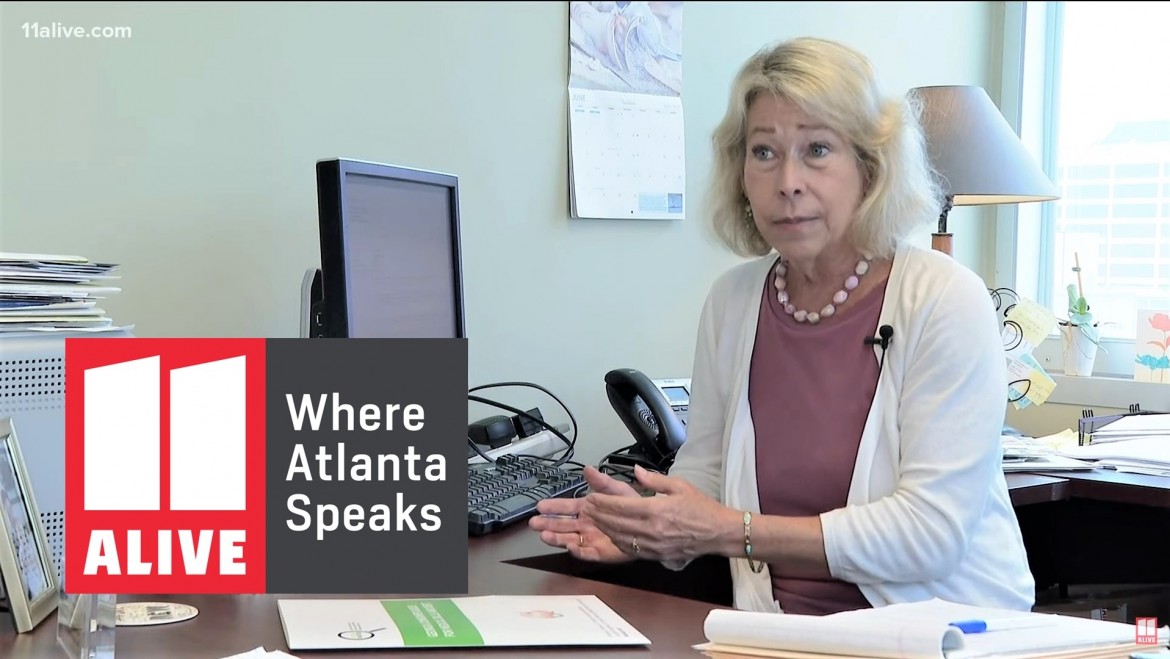November 23, 2021 By Savannah Levins, 11Alive (Watch Now)–
Did you know that medical bills are negotiable? Or that you can get care in Georgia for free?
Georgia Watch, a nonprofit consumer group, recently received a $190,000 grant to help Georgians lower or eliminate their medical debt.
“People just don’t even know what their rights are,” Liz Coyle, executive director of Georgia Watch said. “We know people who can’t pay their rent or mortgage or put food on the table because they’re trying to pay medical bills.”
Census data shows 43 million Americans have past due medical bills. More than 1 in 4 reported they couldn’t pay for necessities like food and heat because of the debt.
Sarah Olson is one of the millions struggling with growing medical debt, chronicling her battle with endometriosis on Instagram.
“Just living day to day was incredibly hard,” Olson said. “The financial burden is just insane, especially when so many people that are struggling with [endometriosis] are really young and because of the nature of the disease, they’re not able to work. So how do you do that? You know, it’s really hard.”
Between the specialists, ER visits, and a recent surgery at the Center for Endometriosis Care in Atlanta, Olson says her bills have surpassed $15,000. The newlywed college student feels she’s already being buried by debt, and started a GoFundMe to help.
“We have to pay having to pay out of pocket and the costs are just insane,” she said. “I cry about it all the time. It’s a really overwhelming and hard to know what to do or where to turn.”
Olson’s story is like so many others’. That’s why Georgia Watch is trying to raise awareness about the fact that medical bills are negotiable, and that help is available.
“We often will find out that someone who has contacted us is someone who obviously would have qualified for a financial assistance policy so that their bill was either nothing or substantially lower,” Coyle explained. “But people pay because they they get worried.”
Coyle says there’s often a lack of transparency in medical billing that leaves people feeling stuck.
“Sometimes they just need an organization like ours, then it can explain to them what their rights are,” she said.
Georgia Watch put together this consumer guide about how to negotiate your medical bills.
Here are some things to know:
- If you are planning out care or a procedure ahead of time, make sure the provider is in your insurance network.
- Ask for a list of estimated costs beforehand. Under state law, providers must disclose that information if you request it.
- Search for the estimated “fair price” on the Healthcare Bluebook
- If you don’t have insurance, search for providers within the Indigent Care Trust Fund (ICTF) network. That’s a state program that covers some or all costs for low income patients.
- Once you get your bill, know that you can dispute and negotiate any and all charges. If you are able to pay in cash upfront, you have more leverage to get your bill lowered.
And there are nonprofits like Georgia Watch that will help you for free.
“We need to make sure that nobody in Georgia doesn’t seek health care they need because of the fear of the unknown,” Coyle said.
For the millions like Olson, knowing there is help available is hope to cling to.
“Just last night I was on the phone with my surgeon and he is advocating for me, trying to get my costs lowered,” she said. “My advice to others…don’t let other people tell you that your pain is not valid because it is. You deserve the help that you need.”
Here are free state and national resources to help with medical debt:
- Georgia Watch medical debt Consumer Guide
- Georgia Legal Aid
- Georgia state Consumer Protection Division guide
- Tips from GA Public Interest Group
- Healthcare Bluebook
- RIP Medical Debt
Source: 11Alive

